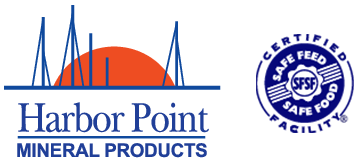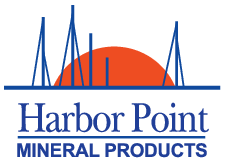Follow Us x
OPTIMUS
NUTRITION WITH SCIENCE
Over Past three decades, Harbor Point Mineral Products Inc. has been providing our customer with the finest feed additives and other nutritional and technical solutions in the animal feed industries. Our technical team led by PhD nutritionist, provides nutritional support, education, extension, training and on farm technical support. Recently developed our product with "OPTIMUS" brand enhance the health, vitality and animal productivity, improving quality, safety and affordability of the food. We serve and support livestock industries with our best quality products and technical support to our affiliated customers.
OPTIMUS
COMPLETE
Optimus complete is proprietary package containing yeast,enzymes and immune supplements for animal health and nutrition.
Feeding rate: Cattle 10 grams per cow per day
Pig 2-3 Lbs per ton of feed
Poultry 2-3 Lbs per ton of feed
OPTIMUS
YEAST
Optimus Yeast is unique broad-spectrum feed additive with probiotic effects and performance enhancing natural ingredients like derivatives of microbial cell wall, enzymes and plant extracts. Optimus yeast culture predominantly contains Saccharomyces cerevisiae, which is gently harvested and dried to retain their viability together with the fermented yeast metabolites. Other natural ingredients including plant extracts with direct fed microbials are included as potential immunostimulant to maintain gut health.
Effects of yeast supplementation in Ruminants.
Rumen metabolism:
• Stimulate dry matter intake by increasing rate of digestion in first 24 hours
• Oxygen scavenging and reduce rumen redox potential
• Maintains anaerobic condition for growth of cellulolytic bacteria
• The metabolites produced from live or dead yeast stimulates the growth of lactic acid utilizing bacteria.
Cow Health and Immunity:
• Improves rumination time with greater meal frequency and smaller meals.
• Reduces risk of acidosis and stabilizes rumen pH
• Improves milk and milk component yield
• Improves nitrogen balance with significant decrease in rumen ammonia concentration.
• In calves, improved fecal score, lowered overall health disorders and improved survival rate
• Heat stressed cows: lowers vaginal temperature, respiration rate and cortisol level.
• Live yeast shows superior binding to tested E. coli, Salmonella and Listeria strain.
Yeast supplementation in monogastic animals
Benefits of Optimus yeast in pig:
• Promotes feed intake and growth performance
• Better resistant with daily stress and lower mortality
• Stimulation of nonspecific immunity
• Anti-adhesive effect against pathogens
• Toxin action inhibition
• Antagonistic effect against pathogenic microbes
• Reduces diarrhea and wet litter problem with better survival rate with decreased mortality in piglets
Benefits of Optimus yeast in Poultry:
• Improves feed utilization, weight gain and nutrient absorption
• Improves fertility, hatchability and egg shell quality
• Enhances immunity and maternal antibody transmission to chicks
• Inhibits pathogenic organisms in gut
• Improves microbiota stability and resists enteric disease
• Higher and prolonged peak egg production
DFM : 3.9 X 109 CFU per gram
Feeding rate: Cow: 14 grams per head per day
Poultry: 3-5 Lbs per ton feed
Pig: 3-5 Lbs per ton feed
OPTIMUS
IMMUNO
The feed additives in Optimus Immuno are made up of high affinity sorbent hydrated sodium calcium alumino-silicate with yeast and bacterial inoculation safe for use in animal feed.
Benefits
• Provides a natural source of cell walls with the highest beta glucans
• Contains mannan-oligosaccharide derived from outer cell walls of Saccharomyces cerevisiae, which works against colonization of pathogens in the gut
• Keeps immune system defense mechanism strong and balanced.
• Suppresses pathogen adhesion and regulate gut microflora in pigs and poultry
• Reduces mortality and increase feed conversion ratio in birds
• Supports gut health and immunity in livestock
Product Stability
Other features of Immuno: stable in extrusion and pelleting; has a long shelf life; is heat stable; and is consistent in performance. It is also compatible with salt and mineral supplements.
Effects
Immuno prevents colonization of rumen in the intestinal tract by pathogens and stimulates the immune system. It enhances the action of beneficial bacteria such as Lactobacillus and Bifidobacterium making an immunological barrier against infections. In addition to acting as immunomodulator, it is also a powerful tool for stress management and combats environmental factors that influence herd productivity.
Special Features of Immuno In Ruminants
Optimus Immuno is a combination of different ingredients including natural sodium aluminosilicates, vitamins, enzymes, premium
yeast fraction rich in mannan oligossacharides, beta glucans, and some essential probiotics. The immune system will be well prepared to fight against opportunistic diseases. It helps:
• Increase milk yield, feed intake, and butter fat without altering protein metabolism
• EnhanceS rumen pH and acetate propionate ratio by reducing rumen ammonia concentration
• Prevent metabolic diseases in dairy cattle
• Significant reduction in ammonia concentration in rumen
Research in calves has been proven to enhance intestinal absorption of antibodies and remove excess liquid from feces.
Immuno allows easy assimilation of rumen microorganisms into the digestive system and protects animals against build up of toxic levels of ammonia in the system.
Significant Benefits of Immuno on Monogastric
Immuno contains adsorbent feed additives or flow agents which have been reported to be effective against mycotoxins in the gastro-intestinal tract in pigs and poultry. It also aids in:
• Decreasing severity and duration of diarrhea and intestinal disturbances
• Promoting blood serum antibodies that fight against E. Coli and toxic effects of mycotoxins in the blood stream
• Increasing health, performance, and defense against mycotoxins
DFM: 3.4 X 108 CFU per gram
Feeding rate: Cows 2 ounces (56 grams) per head per day
Pig: 3-5 Lbs per ton feed
Poultry: 3-5 Lbs per ton feed
OPTIMUS
ZYME
Why Enzyme in Animal Feed?
Feed enzymes are used to increase the availability of starch, protein, amino acids, and minerals such as phosphorus and calcium from feed ingredients. They also help:
• Increase nutritive value of the available feed ingredients
• Improve the efficiency of digestion
• Breakdown anti-nutritional factors in the ingredients
Improved efficiency and cost reduction – Breaking down of anti-nutrients allows the animal to digest its feed more efficiently, leading to more milk, meat, or eggs per pounds of feed.
Environmentally friendly – Improves digestion and absorption of nutrients which reduces phosphorus and nitrogen excretion.
Feed consistency – Decreases nutritional variation in the feed ingredients resulting in uniform animal production.
Gut health – Improves nutrient digestibility and decreases competence with pathogenic bacterial load.
Supplementing enzymes on ruminant diet: Feed enzyme additives target mainly the fiber fraction of forages with limited work using amylase to improve starch utilization. Improvements in ruminal fiber degradability allow cattle to consume more feed by reducing physical fill in the rumen. Higher DM intakes (DMI) are especially beneficial for dairy cows where milk production is limited by digestible energy intake. Zyme is used to stimulate desirable bacteria and fungi, inhibit lactate production, and increase lactate utilization. It also improves nitrogen balance and binds pathogenic organisms and mycotoxins.
Benefits: 1. Increases dry matter intake, 2. Helps to optimize rumen pH, 3. Improves health and immunity. 4. Ability to better cope with heat stress 5. Increases milk efficiency and components 6. Application: 10 grams per head per day
Exogenous enzymes for pigs and poultry
Feed ingredients used in monogastric diets contain substantial quantities of anti-nutritional factors which limit both feed value and diet digestibility. Enzyme supplementation to cereal based poultry diets improves feed efficiency with increased average daily gain. Similarly, improved ileal and total tract digestibility of nutrients was observed in pigs. Amylase breaks down starch in grains and grain by-products. By increasing starch digestibility, amylase potentially allows pigs and poultry to extract more energy from the feed which can be efficiently converted into meat and egg production. Protease is a protein-digesting enzyme that is used in pig and poultry nutrition to break down stored proteins in various plant materials and proteinaceous anti-nutrients in vegetable proteins. Supplementing the feed with phytase releases phytate-bound inerals, proteins and starch which can then be digested and absorbed by the animal to improve the efficiency of meat and egg production.
Application: 2-3 lbs. per ton of feed


